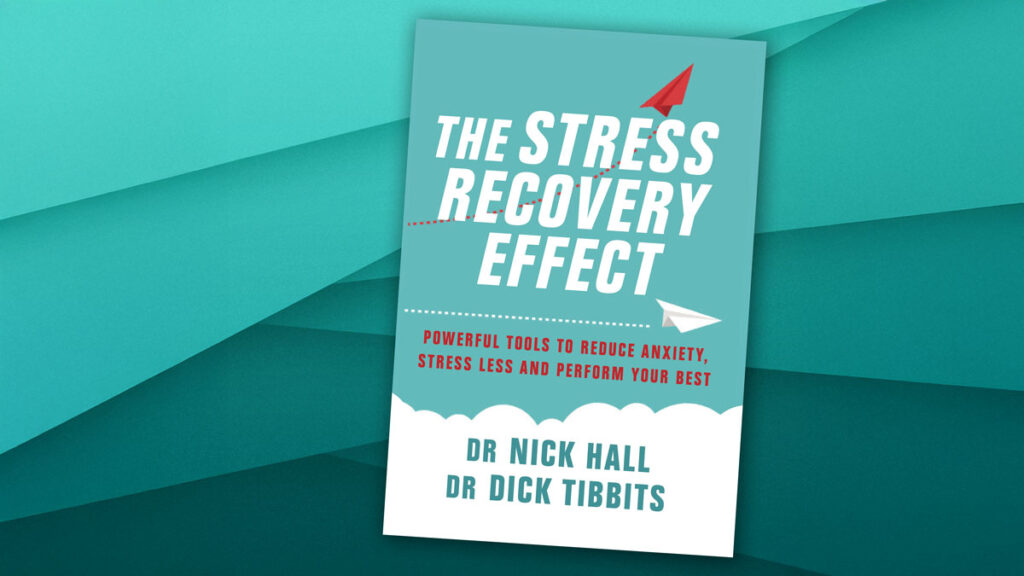Late last year, a documentary came out on Netflix called Live to 100: Secrets of the Blue Zones, which outlined the significant health benefits which those living in Blue Zones around the world enjoy, and their secrets to longevity. A Blue Zone is a region in the world where communities live exceptionally long lives beyond the age of 80 due to their lifestyle practices and diet. One of the Blue Zones which this documentary highlighted was Loma Linda, a predominantly Seventh-day Adventist region in California, which is noted for being one of the few locations on earth where many inhabitants live to 100 years of age, the average being 90 years.1 Loma Linda has been made iconic among the Blue Zones for its resilience in remaining unaffected by the predation of Western culture and diet on the community while other Blue Zones have shrunk due to Western influence.
Loma Linda is a Blue Zone because of the unique Adventist health message which our Seventh-day Adventist Church champions. But how seriously are we taking this message, and what perhaps lesser-known benefits does it offer?
Other than living longer and healthier lives, the Adventist health message carries with it significant and unexpected implications for our mental health, which have only being discovered in recent months.
The Metabolic Theory of Mental Illness, as presented by Dr Christopher M Palmer (MD), is a revelatory new approach which has identified a significant link between the function of our metabolism, diet and our mental health. This theory maintains that metabolic dysfunction in brain cells can explain almost entirely all symptoms of mental illness.2 It suggests that the cause of metabolic dysfunction can also be the solution—this being our diet.* While poor eating choices result in dysfunction of our metabolism due to insufficient nutrients and vitamins being received, so positive eating choices can work as the treatment for metabolic dysfunction.
Now, this theory is more than the mere claim that “eating healthy makes you feel better and happier“, though there is substantial evidence supporting this notion. The Metabolic Theory of Mental Illness goes further into the psychiatry of the brain’s neural structure and has amassed evidence indicating that alterations in brain energy metabolism are the root cause for all psychiatric disorders, from anxiety to schizophrenia, autism to Alzheimer’s disease.3 This is a truly thrilling discovery for the future of mental health treatments!
Let’s unpack this theory a little bit to better understand what it means for us. While many of us understand metabolism as referring to our ability to regulate our weight and “burn calories”, our metabolic functions extend far beyond this purpose. Metabolism is the process by which living organisms convert food into energy, building blocks for proteins, membranes and other essential cell components. Our metabolism is an incredibly complex process; however, its primary operations are regulated through the mitochondria in our cells. Our mitochondria play a critical role in the production and regulation of neurotransmitters, as well as the production of key hormones, and have a significant role in the control of inflammation.4 The function of mitochondria can be severely disrupted by poor dietary choices.
The dysfunction of mitochondria has been scientifically shown to be correlated with depression, anxiety, suicide, autism, ADHD, Alzheimer’s, schizophrenia, seizures, bipolar disorder, mania and many other mental health issues.5 In each mental health condition which displays symptoms that come and go, or wax and wane in strength and intensity, the metabolic compromise of brain cells caused by our diet is proposed to be the explanation for mental illness. This is evidenced by the following research:
- Brain imaging studies to establish the neural circuitry of depression have shown abnormalities in metabolic activity in the brain structures. Mitochondrial compromise relating to impaired neural plasticity has been long seen in individuals suffering from depression and anxiety.6
- Mitochondria malfunction has been detected in various studies of bipolar disorder, finding diminished levels of ATP, misshapen or undersized mitochondria and unusual distribution of mitochondria in neurons.7
- Mitochondrial dysfunction and damage during childhood brain development processes may also explain the wide array of symptoms associated with autism spectrum disorder.8
- Mitochondrial dysfunction, especially impaired mitophagy, plays a major role in the development of Alzheimer’s disease.9
- Mitochondrial dysfunction could be a crucial factor in the pathophysiology of Attention Deficit Hyperactivity Disorder (ADHD), with severity of ADHD symptoms being reduced by mitochondrial dysfunction treatments.10
Our mitochondria are deeply involved in connecting our physical body with our mind, translating social and psychological experiences into emotional and psychological responses. As research into the role of the mitochondria and metabolism on mental health has accumulated, therapies and treatments for these mental health conditions have arisen, with a primary focus on diet being a significant and effective method for treating, reversing or completely eradicating many of these mental health illnesses and diseases.
Research into numerous diets focusing on the intake of vegetables and reduction of carbohydrates and sugars are being considered in a broad range of conditions associated with neurodegeneration and neural injury, including Alzheimer’s disease, Parkinson’s, traumatic brain damage and stroke recovery.11 As an example of this association, the short-term adoption of the ketogenic diet,** which significantly reduces the intake of carbohydrates, starches and sugars, and increases the intake of proteins, healthy fats and low-carb vegetables (like leafy greens), has been long recognised as an effective treatment for epilepsy due to its neuroprotective properties.12 Diet has been shown to completely treat disorders like schizophrenia and alcoholism, providing lasting remission of symptoms where medications have failed.13

In addition, the American Society for Nutrition in 2023 found a diet of vegetables reduced symptoms of depression and was associated with increased psychological wellbeing.14 Diets high in fibre, such as vegan and vegetarian diets, are excellent for making essential organic compounds like butyrate and ketones, which are essential for mitochondrial function. What this research essentially means is that consuming a healthy and vegetable-rich diet substantially reduces mental health issues by providing your brain with the essential nutrients required to support effective metabolic and mitochondrial function.
This modern research echoes the biblical truths we have known since ancient times. The book of Daniel highlights the value of diet for our mental health and intellect, revealing that a diet of water and vegetables directly contributed towards mental acuity. Daniel 1:20 tells us that ”in all matters of wisdom and understanding about which the king examined them, he found [Daniel and his friends] ten times better than all the magicians and astrologers who were in all his realm” (Daniel 1:20).
Our Adventist health message is about more than merely our physical health. It is a wholistic approach to lifestyle which understands the critical role diet can play on our mental health. Science is only now beginning to uncover the incredible and startling impacts which diet can have on our mental health which we have known from the Bible. But more than this, our Adventist health message holds important truths about the impact which diet can have on our spiritual wellbeing.
As Ellen White says, “The affliction of the stomach affects the brain. The imprudent eater does not realise that he is disqualifying himself for giving wise counsel, disqualifying himself for laying plans for the best advancement of the work of God. But this is so.”
The things which we consume, whether physically or psychologically, end up consuming us; the saying rings true which says, ”we are what we eat”. Just as our diet can have a transformative effect on our mental health and the conditions which plague our mental states, so it can also have a transformative effect on our spiritual lives. And in a similar manner, the spiritual food which we fill our minds with will either edify and nourish or deplete and break down our spiritual wellbeing and intimacy with God.
Eating healthily can offer our minds greater discernment and insight into deeper spiritual truths and the original designs of God for mankind, and free our minds from bondage to addiction, illness and suffering—this being God’s heartfelt desire for every single one of us.
*Disclaimer: This insight is not designed to take the place of medical advice. If you suffer from a diagnosed mental health illness, please seek professional advice on therapies and treatments.
**Disclaimer: The ketogenic diet is not recommended for long-term practice as it can have harmful impacts if practiced for long periods.
- Jonah Goldberg, Column: “Loma Linda Residents live a really, really long time. It’s not because of their health insurance“, Los Angeles Times (2017) latimes.com/opinion/op-ed/la-oe-goldberg-loma-linda-healthcare-20170530-story.html.
- psychologytoday.com/au/blog/advancing-psychiatry/202211/brain-energy-the-metabolic-theory-mental-illness.
- psychologytoday.com/au/blog/the-therapy-center/202405/mitochondria-ground-zero-for-psychiatric-llness#:~:text=The%20metabolic%20theory%20of%20mental,strategies%20to%20treat%20mental%20illness.
- See endnote 1.
- See endnote 2.
- Edward H Tobe, “Mitochondria dysfunction, oxidative stress, and major depressive disorder“ Neuropsychiatric Disease and Treatment (2013), 567-573, DOI: 10.2147/ NDT.S44282
- Clay HB, Sillivan S, Konradi C. “Mitochondrial dysfunction and pathology in bipolar disorder and schizophrenia“, Int J Dev Neurosci. (2011), 29(3):311-24.
- DA Rossignol and RE Frye, “Mitochondrial dysfunction in autism spectrum disorders: a systematic review and meta-analysis“ Molecular Psychiatry (2012), 17, 290–314.
- Rudy Castellani et al., “Role of Mitochondrial Dysfunction in Alzheimer’s Disease“, Journal of Neuroscience Research (2002), 70:357–360.
- Hakan Öğütlü et al., “Mitochondrial Disfunction in Attention Deficit Hyperactivity Disorder“, Eurasian J Med (2022), 54(1): S187-s195.
- Adam L Hartman et al, “The Neuropharmacology of the Ketogenic Diet“, Pediatr Neurol (2007), 36(5):281-292.
- Dougllas R Nordli Jr and Darryl C De Vivo, The Ketogenic Diet Revisited: Back to the Future Division of Pediatric Neurology, Epilepsia (1997), 38(7):743-749.
- See endnote 1.
- Paul Andrew Bourne, Is There A Relationship Between Diet and Mental Health Status? International Journal of Recent Innovation in Food Science & Nutrition (2023), 6(2), 21-22.
Olivia Fairfax is an editorial assistant at Adventist Record.






